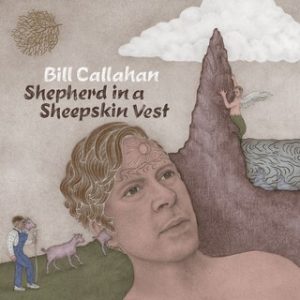
“It sure feels good to be singing again,” Bill Callahan’s earthy baritone grins on ‘Writing’, one of the countless gems on his first studio album since 2013’s Dream River. In the intervening period, the 53-year-old has been preoccupied with marriage, fatherhood and spending time with his dying mother.
These experiences inspire a double LP which develops Dream River’s freeform spirit across 20 mostly short songs that caress each other in playful, and sometimes, profound fashion.
“Like motel curtains, we never really met,” Callahan dryly recalls on early track ‘Angela’ and his imagery becomes more startling as the album unfurls. “I woke up on a 747/flying through some stock footage of heaven,” he sings on ‘747’ about his newborn son’s first glimpse of light. “This must be the light you saw/that just left you screaming,” he ponders before turning to his own mother’s death: “And this must be the light you saw/Just as you were leaving.” Astonishing.
Callahan revisits his loss on the devastating ‘Circle’: “I made a circle I guess/ When I folded her hands across her chest….She slips out the door to flirt with the boys on the library floor.”
Despite such poignant themes, this is not a dour album but one with a jazzy lightness of touch that sees instruments and melodies swim across the speakers. There’s a ticking hi-hat backing Callahan as he MCs an intro to the humorous ‘The Ballad of the Hulk’ which compares the songwriter’s personal journey to Bill Bixby-era David Bruce Banner: “traveling jackets and traveling bags/future rags”.
Lyrical motifs submerge and then re-surface, including shepherds, seafarers and a benevolent godmother. A warm Otherness also pervades, both externally in “God’s face on the water” and internally “when you take responsibility for your own divinity” (‘What Comes After Certainty’).
Above all, Shepherd In A Sheepskin Vest is a very human record – one that stares the limits of our three-score-years-and-ten in the face and walks on smiling. Callahan isn’t afraid to bow to the well-worn wisdom of the Carter Family’s ‘Lonesome Valley’, the sole cover here, and admit that we are only free “when we let go” as “our arms are open/our hearts exposed” (‘When We Let Go’).
Through his days in Smog to the beguiling poetry of his latter LPs, Callahan’s been a songwriter who operates on his own terms. He’s now reaching that lofty point where an artist transcends genre (shown by his referencing this week in a newspaper interview with UK electro-pop pioneers Hot Chip). There’s still a wry sharpness, but in allowing love, new life and death to smooth some of his edges, it may be that Callahan has realised his best work yet.
@petebate
